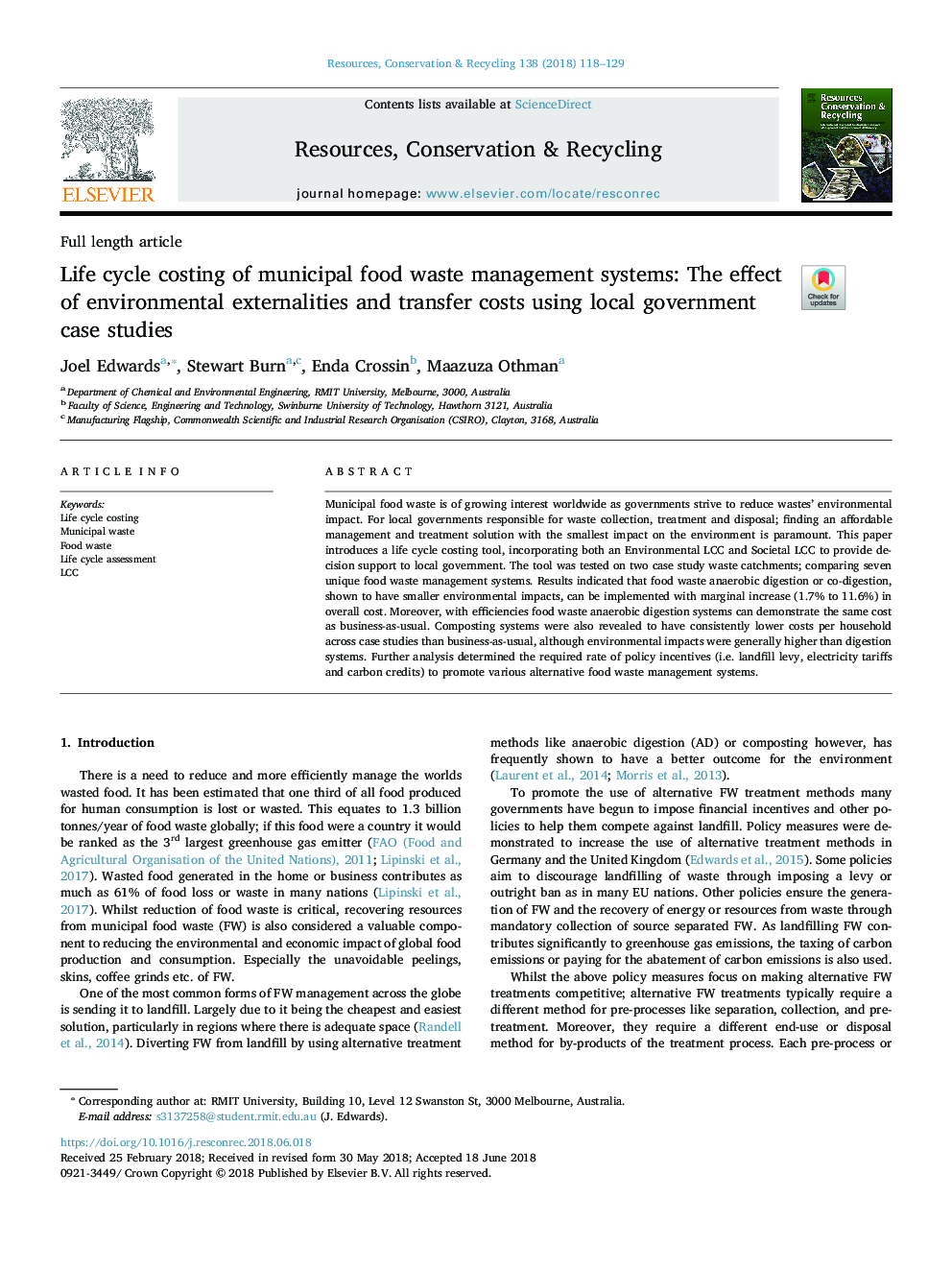| Article ID | Journal | Published Year | Pages | File Type |
|---|---|---|---|---|
| 7493808 | Resources, Conservation and Recycling | 2018 | 12 Pages |
Abstract
Municipal food waste is of growing interest worldwide as governments strive to reduce wastes' environmental impact. For local governments responsible for waste collection, treatment and disposal; finding an affordable management and treatment solution with the smallest impact on the environment is paramount. This paper introduces a life cycle costing tool, incorporating both an Environmental LCC and Societal LCC to provide decision support to local government. The tool was tested on two case study waste catchments; comparing seven unique food waste management systems. Results indicated that food waste anaerobic digestion or co-digestion, shown to have smaller environmental impacts, can be implemented with marginal increase (1.7% to 11.6%) in overall cost. Moreover, with efficiencies food waste anaerobic digestion systems can demonstrate the same cost as business-as-usual. Composting systems were also revealed to have consistently lower costs per household across case studies than business-as-usual, although environmental impacts were generally higher than digestion systems. Further analysis determined the required rate of policy incentives (i.e. landfill levy, electricity tariffs and carbon credits) to promote various alternative food waste management systems.
Related Topics
Physical Sciences and Engineering
Energy
Renewable Energy, Sustainability and the Environment
Authors
Joel Edwards, Stewart Burn, Enda Crossin, Maazuza Othman,
